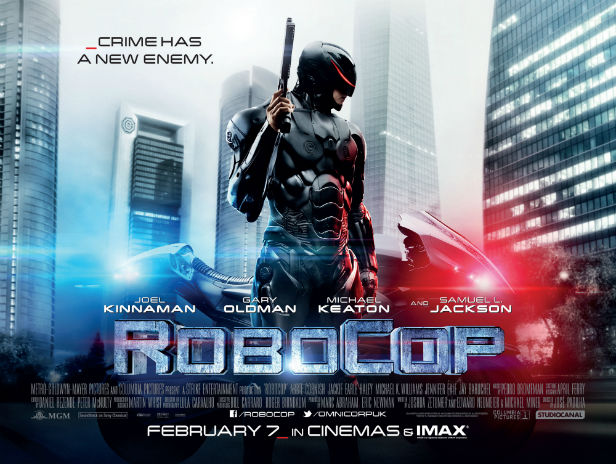I knew how this story was going to end. I knew it. The outcome had already played out on the world’s stage, so there wasn’t any doubt as to how things would turn out in the movie version of these events. Yet, I was still on the edge of my seat. I was still holding my breath, I was still tense, though I didn’t realize just how tense until the credits rolled and I finally started to relax. That is the gift of a great director; that despite already knowing the ending, they can create an experience that is just as tense, thrilling, and emotional as if the ending were entirely unknown. This is exactly what Paul Greengrass has done with Captain Phillips, a film based on the actual events that took place just a few years ago. The history has been written, but the movie brings it alive in a way that makes you feel like you’re experiencing it all first-hand as the events unfold for the very first time.
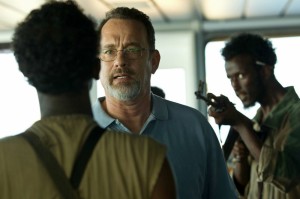 Much of the intensity and raw emotion of this film is owed to Greengrass’ deft touch with the “shaky cam” effect. While that whole shaky camera look has become synonymous with the “found footage” genre of films, Greengrass has learned how to use it as a tool to tell a story rather than using it as a gimmick. Granted, I didn’t always think that. His Bourne films sometimes used the shaky cam effect to the point of obscuring what was going on, which I found frustrating. However, with United 93, he found a way to use the same effect as a way to draw the audience into the reality of what was taking place; of making us feel like we were there, in the moment as the events actually unfolded. With Captain Phillips, he’s refined that technique to almost perfection while also blending it with more typical Hollywood film shots that convey just how big this situation became. At that point, the film contrasts the small, personal side of the story with Phillips and his pirate captors seen with the closer, unsteady shots, and the big, efficient military process that eventually helped free him conveyed with the sweeping, steady shots of ships, choppers, and military might.
Much of the intensity and raw emotion of this film is owed to Greengrass’ deft touch with the “shaky cam” effect. While that whole shaky camera look has become synonymous with the “found footage” genre of films, Greengrass has learned how to use it as a tool to tell a story rather than using it as a gimmick. Granted, I didn’t always think that. His Bourne films sometimes used the shaky cam effect to the point of obscuring what was going on, which I found frustrating. However, with United 93, he found a way to use the same effect as a way to draw the audience into the reality of what was taking place; of making us feel like we were there, in the moment as the events actually unfolded. With Captain Phillips, he’s refined that technique to almost perfection while also blending it with more typical Hollywood film shots that convey just how big this situation became. At that point, the film contrasts the small, personal side of the story with Phillips and his pirate captors seen with the closer, unsteady shots, and the big, efficient military process that eventually helped free him conveyed with the sweeping, steady shots of ships, choppers, and military might.
Those big moments, however, are very few as this is really a personal story. Moreover, despite the fact that the film is called Captain Phillips, it’s a story that’s just as much about the captain of the Somali Pirates as it is about the film’s namesake. This is where the true emotional power of the film resides. The pirates aren’t just faceless “badguys”; terrorists for the hero to take down. They’re people. Especially when it comes to the plight of Muse, the pirate captain, it’s hard not to feel some sympathy for him, and even some pity. At least it was for me. For some in the audience, that didn’t become the case because when the SEAL team takes the fateful shot that eliminates the pirates, much of the theater erupted in cheers and applause. I was disgusted. I was saddened. Three men lost their lives, and one of them was no more than just a kid. These were desperate men, men who lived a life of need, and want that we can’t even begin to imagine. They were men who were doing their job; not a legal job, not a job I condone or think is okay in any way, but they were trying to make their way in life the only way they had available to them.
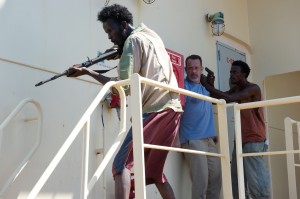 Maybe it’s not very “patriotic” to identify with the “enemy,” but as I watched Captain Phillips, I couldn’t help but see most of the pirates as anything but people; desperate people who lived tragic lives. Listening to Muse constantly tell Tom Hanks’ Phillips that everything was going to be okay was heartbreaking; mostly because I believe he was trying to convince himself of that fact more than his prisoner. When Muse comes aboard the American military ship, under false pretenses I might add, he looked so small, so out of place, so far in over his head that again all I could feel was pity and a desperate desire for him to be shown some small measure of mercy and grace. Yes, Phillips is rescued in the end in dramatic fashion, and it’s a relief when he’s safe, but three lives were snuffed out to do that, and one life was ended by being sent to prison; this is not a happy ending. It’s a tragedy, and it’s heartbreaking. Captain Phillips is bold and powerful because it’s willing to help us understand that.
Maybe it’s not very “patriotic” to identify with the “enemy,” but as I watched Captain Phillips, I couldn’t help but see most of the pirates as anything but people; desperate people who lived tragic lives. Listening to Muse constantly tell Tom Hanks’ Phillips that everything was going to be okay was heartbreaking; mostly because I believe he was trying to convince himself of that fact more than his prisoner. When Muse comes aboard the American military ship, under false pretenses I might add, he looked so small, so out of place, so far in over his head that again all I could feel was pity and a desperate desire for him to be shown some small measure of mercy and grace. Yes, Phillips is rescued in the end in dramatic fashion, and it’s a relief when he’s safe, but three lives were snuffed out to do that, and one life was ended by being sent to prison; this is not a happy ending. It’s a tragedy, and it’s heartbreaking. Captain Phillips is bold and powerful because it’s willing to help us understand that.
I find it interesting that the theater cheered since we live in a culture of “understanding,” of “diversity,” and of “acceptance.” We live in a culture that says it’s not our place to judge, as the line between right and wrong is relative. Yet, they cheered when the “bad guys” went down. You know, Christians often get a bad rap for being narrow, restrictive, unaccepting, and intolerant, and sometimes they’re certainly worthy of those labels. However, Jesus was entirely different. He had a gift for seeing past labels. He didn’t see “tax collectors”; he saw people in need. He didn’t see “prostitutes”; he saw wounded hearts in need. He didn’t see “sinners”; he saw those created in the image of God who were in desperate need of a Savior. In short, Jesus always saw the person and the need. When I realized that I pitied Muse and his friends, and I when I felt saddened at their tragic end, I think I got a little glimpse of how Jesus always saw everyone he encountered and how he was always ready to see them with compassion. He didn’t see the labels, he saw the person, and he was always ready to reach out with his loving hand to heal, to help, and to save. He never condoned sin, he never wavered on the absolutes of right and wrong, but he always loved those he encountered. It’s not easy to see the world that way, not even for those who take on the name of Christ as Christians. It wasn’t for those in the cheering audience of my screening, but my brief moment of insight into how Christ saw that world as I sympathized with those Somali pirates on the screen helped me appreciate even more the great power of God’s love, compassion, grace, and forgiveness which he physically embodied in his son Jesus Christ. When I take time to ponder that, it’s simply leaves me awestruck.
I have to admit I was also awestruck by Tom Hanks’ performance; it’s nuanced, and it’s powerful. More so, I was awestruck by the performance of Barkhad Abdi who plays the pirate captain Muse. He humanizes what could have otherwise been just another “terrorist badguy.” He draws out our sympathy for a man living in the kind of desperate want that none of us could ever readily understand. He portrays a man who is dangerous, but also one who just wants to catch a break and live a different, better life. At least for me, Abdi’s performance made we want a better end for him, even though I knew because of what happened there wasn’t any chance of that. I was sad that his lack of choices led to the tragic ended depicted in this film. Seriously, as good as Hanks is, and he’s good here, I think Abdi may have been even better. The real tragedy would be for him no to get any sort of nod for an award as Supporting Actor.
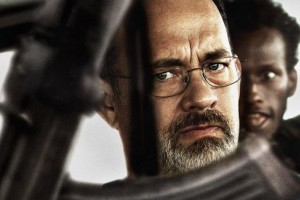 Captain Phillips is a tense, powerful, emotional film that contrasts two very different worlds that fatefully collided on a lone cargo ship. It’s a tense game of chess, of psychological warfare, of a battle of wills, and the endurance of the human spirit and just how far that can take someone in extreme, desperate circumstances. It’s easily one of the best films of the year, and a powerful reminder that some of the greatest stories aren’t fiction, but the one that are actually happening in the world around us.
Captain Phillips is a tense, powerful, emotional film that contrasts two very different worlds that fatefully collided on a lone cargo ship. It’s a tense game of chess, of psychological warfare, of a battle of wills, and the endurance of the human spirit and just how far that can take someone in extreme, desperate circumstances. It’s easily one of the best films of the year, and a powerful reminder that some of the greatest stories aren’t fiction, but the one that are actually happening in the world around us.

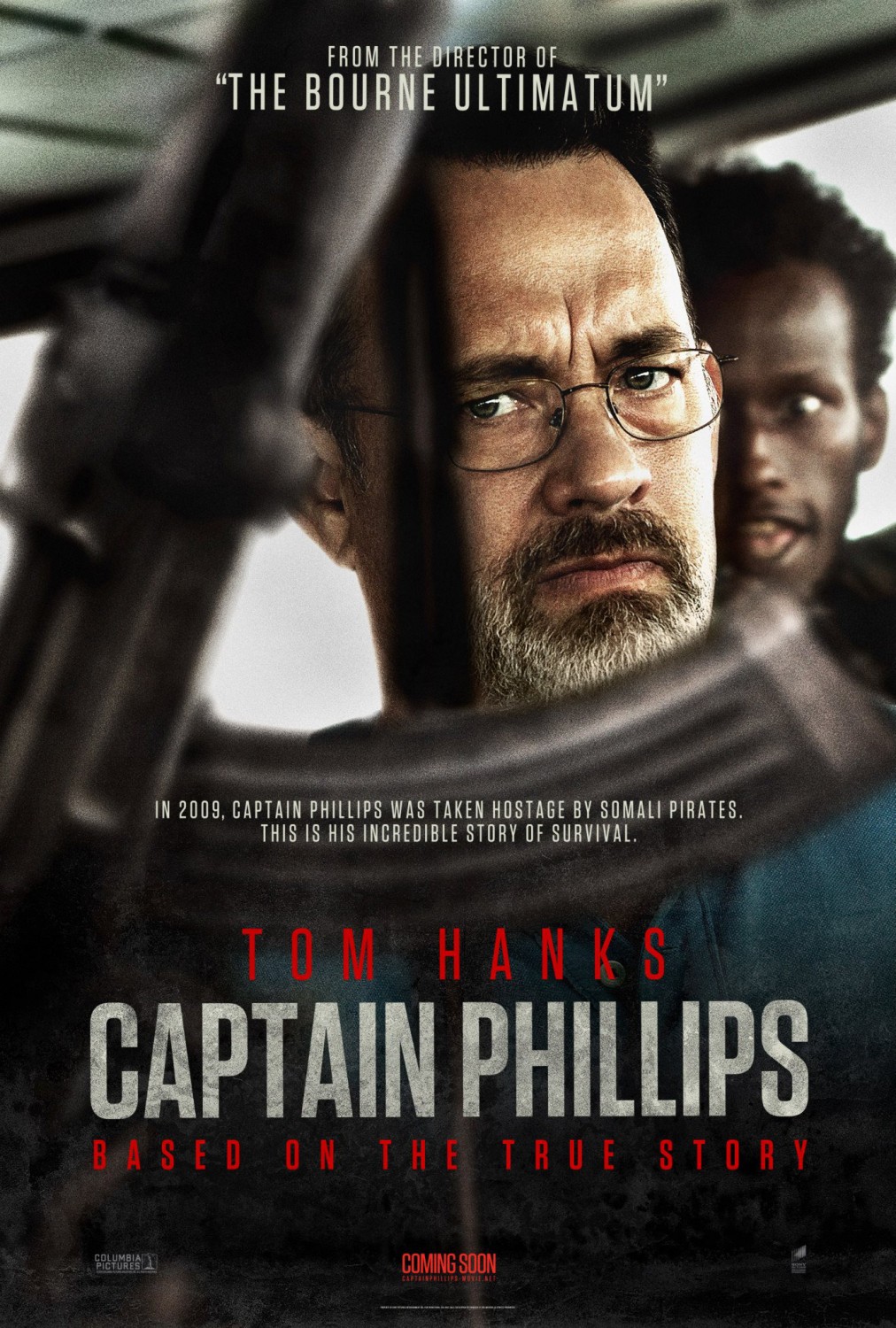
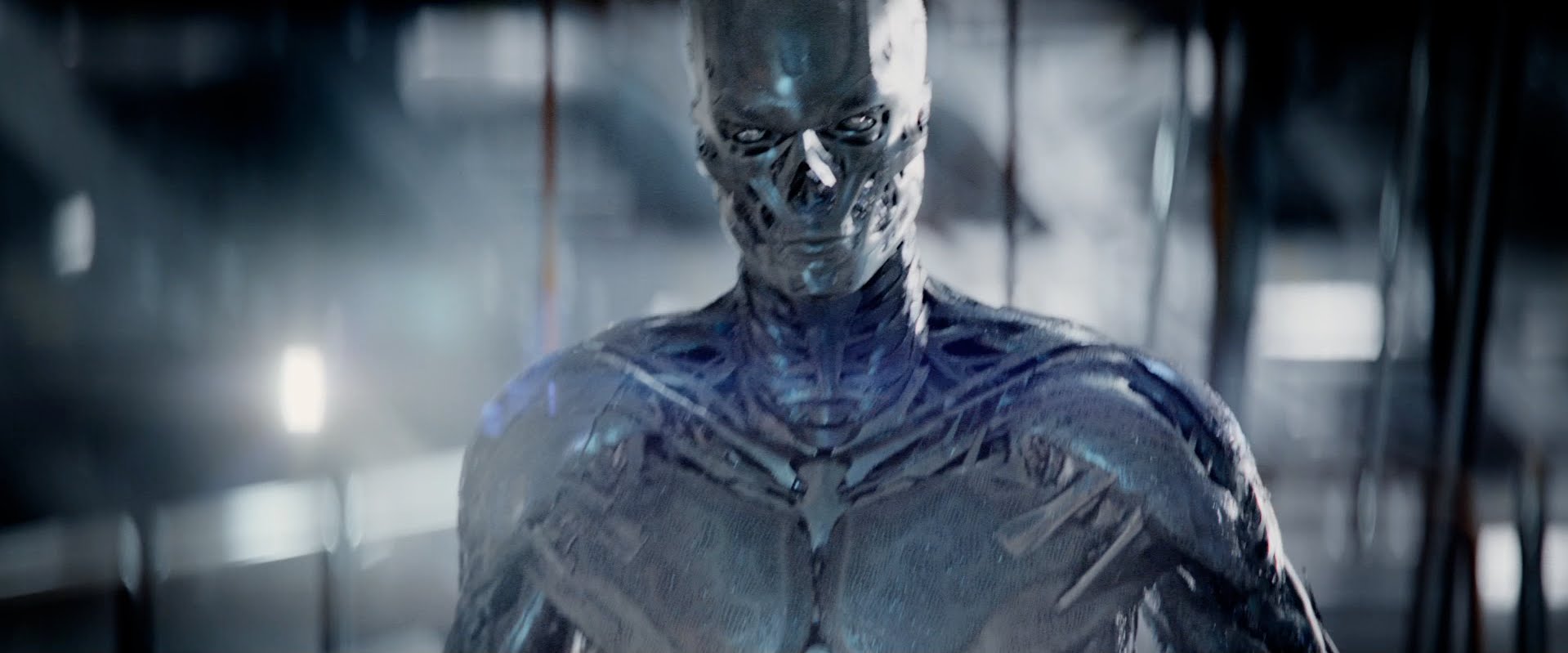

![300: Rise of An Empire [Official Trailer]](https://www.jamthehype.com/wp-content/uploads/2013/12/300-Rise-of-An-Empire-Official-Trailer-3-Sullivan-Stapleton-Eva-Green.jpg)
